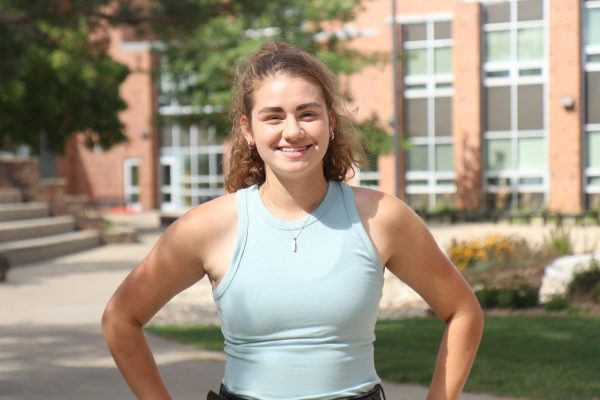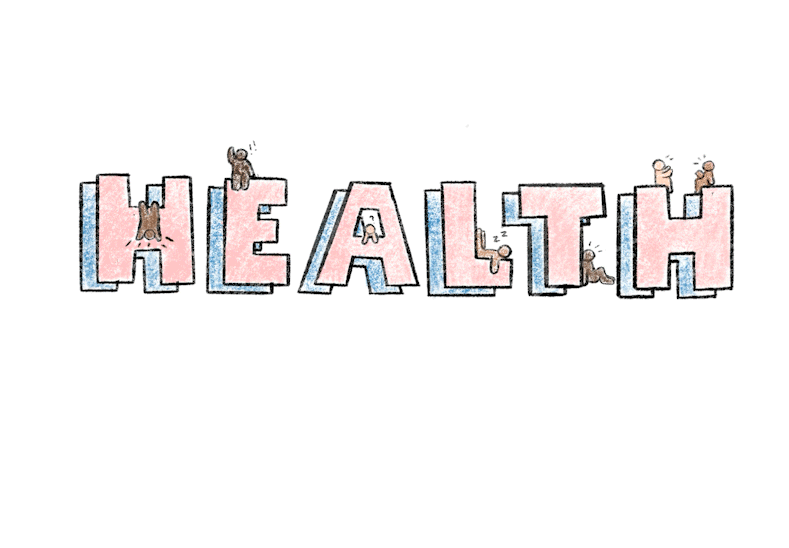Health classes: more harmful than helpful
Health and Personal Development are two courses that ICCSD requires junior high and high school students to take. From puberty to sexuality, these courses cover everything the district thinks that young teens should know, but is the curriculum really educational?
Health classes in the ICCSD are outdated, and need to be reformed to fit today’s social scene for teens.
When I was younger, I had the infamous American Girl book about puberty that I am sure many kids had. My mom always wanted me to read it and take it seriously, but the content always made me feel embarrassed or awkward, which is going to be common among preteens talking about puberty no matter the scenario. In fifth grade, my class spent a couple of days talking about puberty for about 30-45 minutes. The thing that always confused me was that the boys did one lesson, and the girls did a different one, specific to each gender. I knew this was because of our maturity level at that age, but it was also odd that these teachers would not want us to learn about puberty for everyone.
Ever since then, the health classes I have taken in high school and junior high have not been much better. The giggles and nervous blushing from awkward preteens and teens never diminished, but the content seemed to be the same as well. While I learned a lot about sexual identities, orientations and mental health, it seemed like the overall topic of sexual health was darted through quickly.
When it came to the unit about sexual activity and how to be safe, the biggest thing I remember was my 8th-grade teacher saying the best way to go about being sexual is abstinence. Every other form of protection would seemingly never work, and even using it would result in my getting pregnant or an STD. It felt as though we were being shamed if we were sexually active, and that we would face the consequences no matter what. I know that there are a lot of things that contribute to why I was taught this. Perhaps the teacher believed in abstinence, and could not successfully teach that topic without bias. Another reason is that it is simply just an awkward subject to talk about. Because of these “maybe” and “what if” reasons for an improper education on sexual health, my generation is struggling. With only social media and peers to get “accurate” information from, schools’ curriculums are only providing outdated information.
In my junior year of high school, we were shown a video about consent with an analogy to making tea. This was in light of a student at my school being accused of sexually assaulting another student. I thought to myself, “Seriously? I’m 17 years old, and this is the first time this school is teaching every single student about this.” I then realized that consent was never a big thing to be talked about either. Yes, we had the “no means no” talk, but that was about it. I should have been taught what sexual assault was before I was in high school. Having been in a high school relationship myself, I have learned that it’s not just about consent; it’s also about manipulation, Gaslighting and all of those other horrible words you see being used so much recently.
I can’t remember when I was taught how to handle feeling guilty by my partner about sexual activities. That is the issue. We are taught so strongly about what not to do, we don’t know how to handle an impossible situation, and we don’t know what constitutes seeing or talking about it. We were never educated on how to actually safely be sexually active, we were only told that the best way to avoid all of the potential problems that come with it, was never to do it.
This is the same for drugs and alcohol. We are simply taught not to do it. There’s talk of drunk driving and alcohol poisoning, but no teen learned how to “party” safely. We are so driven by fear of being caught and getting in trouble with the law, our parents and even our sports teams that teens will do dangerous things not to get caught, like driving under the influence or getting into a car with someone who is not sober.
Health classes are built to teach students how to proceed in the world, but some of the most important lessons are skimmed over to avoid simple discomfort or awkward classes. One in four women under the age of 18 has been sexually abused, and one in six men. Of those women, 28.8% were victimized by a current or former partner. We might know how to say no to strangers, but saying no to someone you think loves and cares about you is a different situation that I never knew how to handle. The hard topics of drugs, alcohol and sex are always going to be big parts of teens’ lives as they try to navigate through the world. Although some situations are difficult to talk about, and most likely even worse to teach, the health of teens depends on them. These health classes can be modernized to help students learn how to safely engage in activities instead of ignoring them. Health classes have attempted to prevent these heavy issues from occurring, but what do teens do now when they face these problems with their consequences?
Your donation will support the student journalists of West High School. Your contribution will allow us to purchase Scholarship Yearbooks, newsroom equipment and cover our annual website hosting costs.

(she/her) Camille Gretter is a senior at West High and this is her third year on staff. She is the Online Editor-in-Chief, and outside of West Side Story...

Vera Tanas is a senior, and this is her third year on staff. She is the Copy Editor and Art Editor for the West Side Story website. Outside of journalism,...




